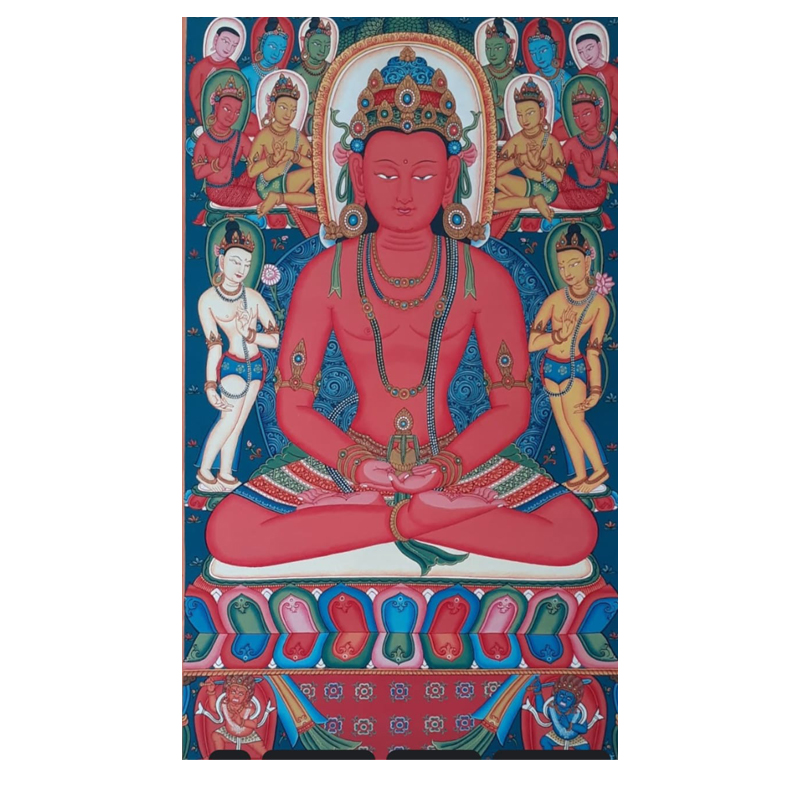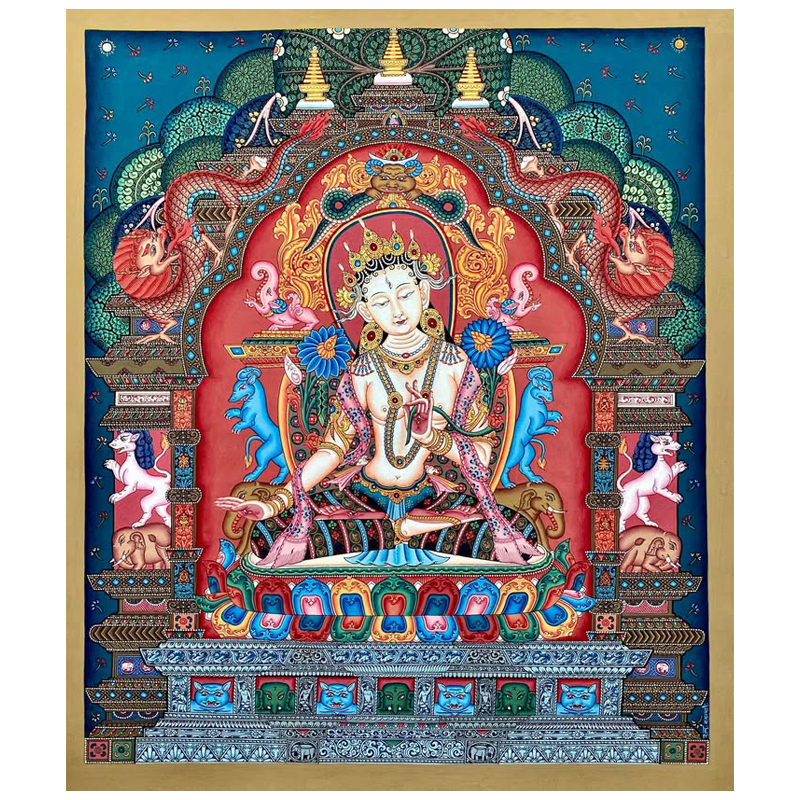

This painting is a traditional depiction of Aparmita
(Amitayus), a form of Amitabha Buddha associated with infinite life and
compassion in Buddhist tradition. Aparmita is primarily revered for his ability
to grant long life and dispel obstacles that shorten one’s lifespan.
Key Features of the Painting:
- Central
Figure:
- Aparmita
is shown seated in the vajra posture (cross-legged) on a lotus
throne, symbolizing purity and enlightenment.
- His
skin is radiant red, a characteristic associated with Amitabha’s
compassion and vitality.
- He
holds a kalasha (vase) in his lap with both hands. This vase
contains the nectar of immortality, symbolizing longevity and the
purification of all negative karmas.
- Ornaments
and Attire:
- Aparmita
is adorned with elegant bodhisattva ornaments, including a jeweled
crown, necklaces, earrings, and armlets.
- His
attire features intricate, colorful patterns typical of traditional
Tibetan and Nepali Thangka art.
- Surrounding
Figures:
- Multiple
deities or bodhisattvas surround Aparmita in smaller scale, each
radiating serene expressions and vibrant hues. These figures represent
divine support, blessings, and the interconnectedness of all enlightened
beings.
- On
the sides, attendants or offering figures are depicted with offerings and
gestures of reverence.
- Base
Design:
- The
base of the painting displays lotuses, symbolizing the purity of
Buddhist teachings and enlightenment.
- Below,
wrathful protective deities or symbolic guardians appear to ensure the
sanctity of the enlightened realm.
- Color
Palette:
- Dominated
by red, blue, green, and gold, the palette reflects the spiritual and
cosmic significance of the composition.
Purpose of Aparmita Thangka:
- Longevity
and Health: This painting is often kept in homes or monasteries to
invoke blessings for a long and healthy life.
- Meditation
Aid: Practitioners meditate on Aparmita to overcome obstacles to
spiritual and physical well-being.
- Ritual
Significance: It plays a vital role in longevity pujas (rituals) and
ceremonies to remove life-threatening obstacles.
